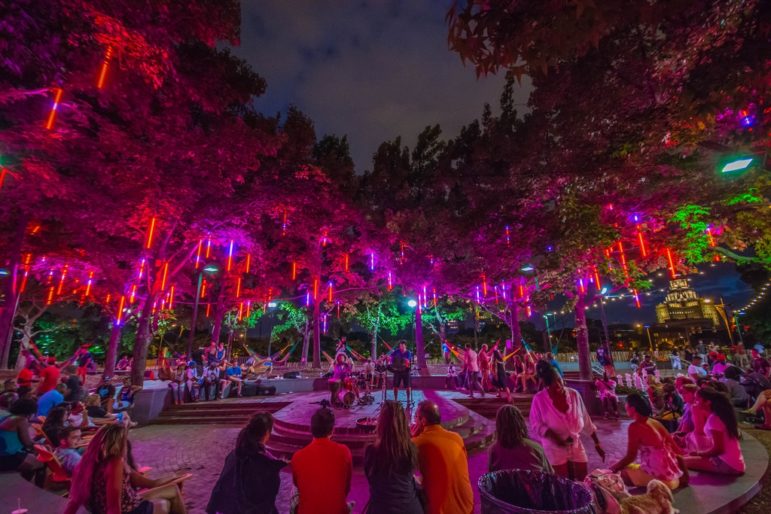
June 3, 2016; Philadelphia Inquirer
Contrary to popular belief, public service innovation is happening in local communities across the country. The Knight Cities Challenge Winners Summit in Philadelphia is celebrating this by honoring its past and present award recipients, which they believe to be the best and brightest in local government innovation. Not surprising to the readers of NPQ, nonprofit organizations represent about half the recipients, or 18 of 37 winners. Individual civic leaders are the second largest group (10 out of 37), followed by city agencies (7 out of 37) and then universities (2 out of 37).
Projects ranged from “Pop-Up City Halls” in Charlotte, N.C., that take council meetings to the citizenry, to an educational eco-science barge floating in the Miami harbor beside million-dollar yachts, to a multi-cultural “New Flavors” food truck in Grand Forks, N.D., that immigrant groups from Africa and Southeast Asia can use to introduce their exotic food.
From the nonprofit perspective, it is also important to recognize the pros and cons that come with challenges from foundations, as reported on by NPQ. However, the Cities Challenge is focused on change at the micro-level inspired by community-cultivated entrepreneurs, not grand, structural, or top-down changes.
For pep rallying purposes, it was hard to beat the “overnight success story” shared Thursday by Groundswell Design Group’s David Fierabend at the Spruce Street Harbor Park, in what used to be a “dull, modestly visited area on the Delaware waterfront.”
Sign up for our free newsletters
Subscribe to NPQ's newsletters to have our top stories delivered directly to your inbox.
By signing up, you agree to our privacy policy and terms of use, and to receive messages from NPQ and our partners.
While it opened in the summer of 2014 as a nine week pop-up project financed by the Delaware River Waterfront Corp., Groundswell lived up to its name with its faux “South Jersey boardwalk,” full of bright colors, lights, sand, snacks and hammocks, now being duplicated at Groundswell projects in Long Beach (California), Memphis, and Baltimore.
Public service innovation is not easy, as most cities struggle to cover the costs of basic city services and infrastructure needs. However, even under these conditions, innovation, creative partnerships, and civic entrepreneurship projects are happening all over the U.S. In fact, the Knight Foundation received 4,500 applications for the Cities Challenge—this represents a lot of civic innovation. And, to be sure, frontline nonprofit organizations are leaders in public service innovation at the local level.
For long-term community growth, Knight is putting $146,000 on 20 Book Clubs, 20 Cooperative Businesses. Conceived by Caitlin Quigley’s Philadelphia Area Cooperative Alliance, the project “builds on the 100 plus co-ops already in Philadelphia that run the gamut from food to child care, makers spaces and hardware stores.”
If you are working on a local, community inspired innovation project (what nonprofit isn’t?) and you are located in one of the 26 Knight communities, you can find out more about applying for next year. But it is even more important to read over the descriptions of these projects to garner ideas about the successes and failures of these inspired models of city boosting.—Lauren Miltenberger












